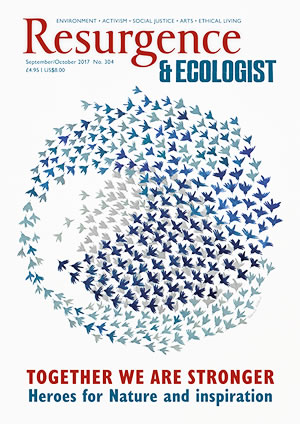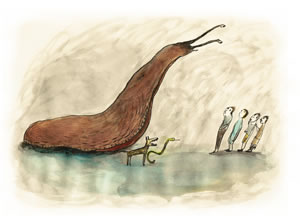I’ve always been less drawn to Tennyson’s “Nature, red in tooth and claw” than to Michael Crichton’s “nature, green in leaf and stem”. But this week I’m all too aware of the former, as my wife was bitten on the heel by an adder. Don’t worry, she’s OK – or I wouldn’t speak of it here. How the adder fared we don’t know, haven’t asked. Privacy was the central issue in the first place.
We’re told human/adder interactions are rare because adders are such shy creatures. My wife is also quite shy, which makes the encounter all the more unlikely. It was serious enough to land her in hospital for several days, and surgeons came within five minutes of operating to relieve pressure on her swollen leg. Mobility is slow to return, but she has developed remarkably enhanced powers of delegation.
In the time left me around the extra duties an adder-bitten spouse entails, I got to thinking of how few predators we have, how few dangers – save those we’ve created ourselves – and to asking: What are the real threats to our wellbeing? Hornets? Dogs? Poisonous plants?
The creature that looms larger than the rest, that truly punches – and munches – above its weight, is the slug. Slugs administer no bite; you’ll never see Slug Warning signs as you will for adders. And yet, metaphorically at least, they are a snake-in-the-grass. They’ve done more to sabotage my attempts to feed my family than all other factors combined: pests, frost, poor time management and the inability to follow simple instructions.
I’ve asked people to tell me the purpose of the slug – what they’re good for – and I’m mostly disappointed. People offer things like: to feed the chickens, treats for hedgehogs, a vague contribution to breaking down organic matter.
The only truly helpful service the slug has ever provided was told me by an erudite audience member in Harbertonford village hall. In days of quill and parchment, thoughtful writers would place a few slugs on their recent scribings, and then hedge it about with lambswool. The slugs would traverse the page, rebuffed at the edges by the lambswool, so that after a few hours their criss-cross-hatched silver trails had effectively sealed the ink in – creating the first-known laminated documents.
More pleasing, if sometimes shocking, are the different ways people speak of dealing with the scourge of slugs. (If you’re of a sensitive disposition, look away now.) They range from the traditional: pellets (boo!) beer traps (better) and herbal infusions (hurrah), via the Tarantinoesque – marching out with stilettos on, armed with scissors (mercy) – to more gentle, esoteric approaches, of which my favourite is applying salted Vaseline around the edges of your raised beds.
The best nonviolent way to deal with slugs, though, is through poetry. It’s most powerful when the poem is about them, addressed directly to them, and read aloud, up close, right in their faces. Don’t just take my word for it, try it yourself. Here’s the poem. Over to you.
Slug
low-born land mollusc
high-impact intruder
easy oozer, slime exuder
free-loader, sprout-spoiler
meandering marauder
disrespecter
of my broad-beans’ border
you’ve a one-track mind
in a one-track body
diligent pillager
soft-horned invisigoth
slow silver scribbler
paradoxically busy sloth
tithe-taker, hole-maker
indiscriminate direct debitor
bold-as-brass brassica editor
you’re a squishetty spoilsport
a glistening drag
the liquorice all-sort
nobody wants to find in the bag
it’s time that you were brought to book
you’re not as tasty as you look
listen chum, you are disposable
look at my thumb, it is opposable
unwelcome invertebrate
this might just hurt a bit
I pluck you and chuck you
into distant dew-drenched greenery
isn’t that mean of me?
slug, when all is said and done
you can hide but you can’t run







